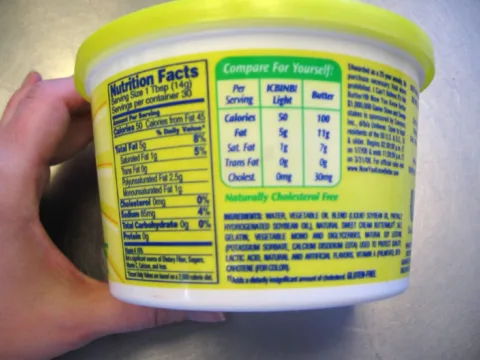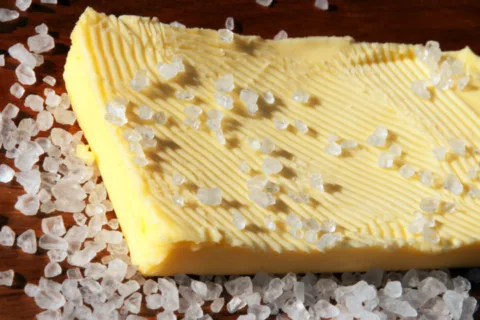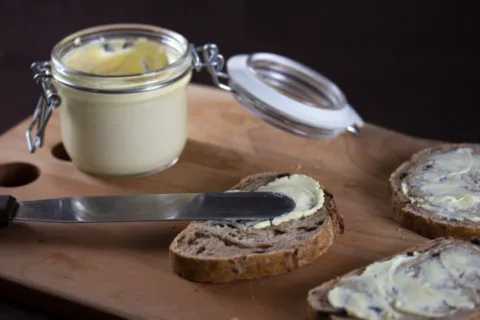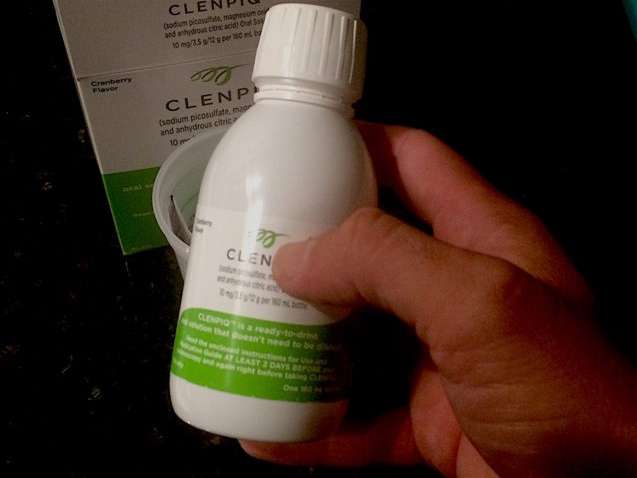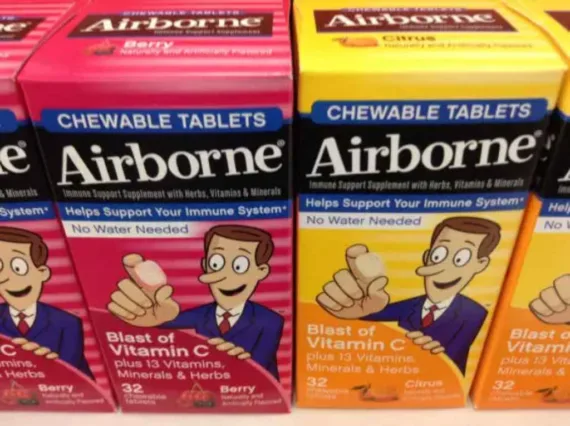The butter aisle at the supermarket can be a confusing one. Decades ago, experts warned that butter was too dangerous for the heart to be freely allowed in the diet.
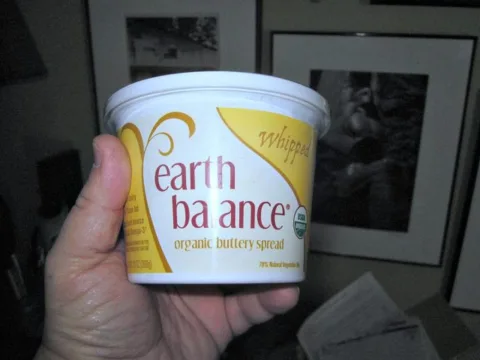
It had too much saturated fat.
So, what’s healthier and better for your health and your weight in general — butter or one of the different blends?
Margarine, the butter substitute made of vegetable oil, was seen as the healthier alternative.
Now trans fats are a hot-button health issue. Since many margarine brands contain trans fats, health experts are rethinking the margarine solution — so here are some healthy butter substitutes for you to try…
What The Experts Say
The American Heart Association has a simple solution – margarine is healthier than butter. When buying margarine:
- You must make sure that you buy a brand that’s free of trans fats
- You shouldn’t use any more than you would with butter (to make up for lost taste)
Some brands do carry a Trans Fat-Free label on the package — they may still contain partially hydrogenated oils with trans fats though. This kind of margarine is better for your health than butter.
I really don’t like the taste of margarine — at all! I sometimes cook with it because it makes a nice substitute for butter when greasing a pan but when I butter a potato, butter my toast, and my corn on the cob — butter is my go-to.
Why Whipped Butter Might Be Better
Butter is the essence of milk – it takes all the milk solids from 10 quarts of milk to make a single pound of butter.
If you’re like me you probably don’t know this about butter:
- Since natural butter is at least 80% milk fat it contains a great deal of saturated fat.
- Solid butter sticks are the worst – every tablespoonful contains 100 calories.
- A single serving can have as much as 7 g of saturated fat and 30 mg of cholesterol.
If you can’t live without butter, whipped butter would be a good idea.
Whipped butter is a much healthier choice than solid stick butter. The whipping process gives the butter greater volume for the same actual weight making it a great butter substitute.
When you spread it on toast or anything else, you see excellent spread without using much butter mass. In this way, you get to cut half the calories and saturated fat out of your butter consumption without having to go to low-fat butter or margarine.
What About Low-Fat Butter?
If solid stick butter is the only thing that feels real to you, you have a choice – you can choose low-fat butter. It’s easy to grasp how milk could be low-fat – with the fat removed, you can have watery milk left.
When you take the fat out of butter, though, what can it possibly have left — isn’t butter almost all fat? Light butter isn’t just regular butter with the fat removed.
You will certainly notice a drop in taste. As long as this doesn’t make you want to smear more on your bread, you’ll be able to cut down on half the calories you take in and on half the fat.
Test A Butter-Olive Oil Blend
Butter-vegetable oil blends don’t have any fewer calories than pure butter. They do have less saturated fat and cholesterol, though.
Even better, since these spreads contain vegetable oil, they don’t harden the way butter does when refrigerated. You can spread them on much thinner.
You have different healthy vegetable oil choices including olive oil and canola, among others.
Try A Fortified Spread
Fortified spreads contain butter or margarine, but also contain other nutritionally rich ingredients added in – olive oil, yogurt, flax oil, fish oil and so on.
Since the butter or margarine bases that these nutritional supplements are added to are the same as with non-fortified spreads, better nutrition is the only benefit you get – you don’t get lower fat levels or calorie counts.
Some tips about fortified spreads:
- Since spreads tend to go on thinly the nutritional benefits are small because the amount used is typically low.
- Brand names like in a Promise Active and Smart Balance Heart Right are popular in this niche.
- The additives they contain help reduce your cholesterol levels.
Unfortunately, for the health benefits promised, these products tend to be very expensive.
Nut Butter – A Healthier Option
Spreads made of fats obtained from avocados or nuts are far better for your health than either margarine or regular butter. Nut and avocado fats are nutritionally rich and can help your health.
Regardless of the product you use, though, you need to remember that every kind of spread is rich in fat. Watching the amount of spread that you allow in your diet can do far more for your health than choosing one specific kind over another.
More Resources For Butter Alternatives
In addition to the links I’ve included above, here are some additional resources to help you choose a healthy butter substitute:

